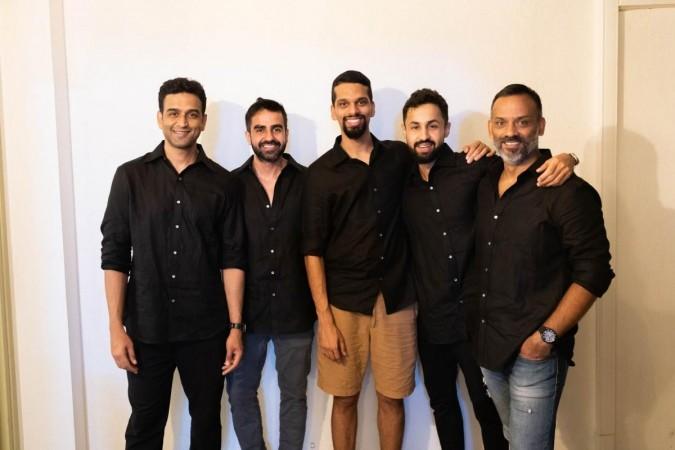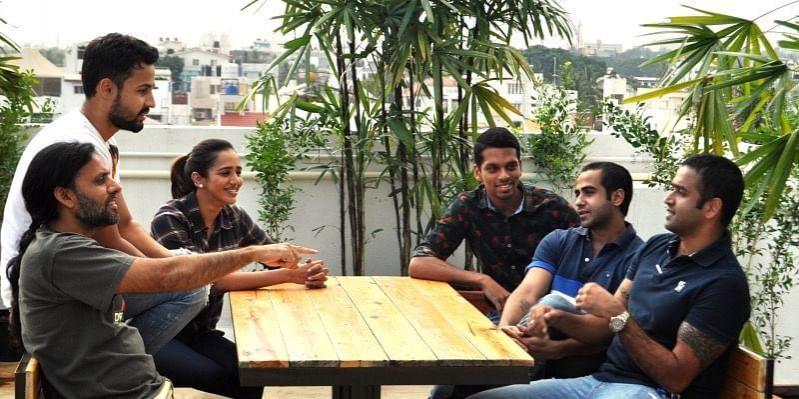At 17, while most teens are wavering between enrolling for competitive exams and feasting their curiosity about the other gender, India's current most successful and "self-made" billionaire was busy exploring the volatile world of trading.
In 2017, while speaking at a startup conference UnPluggd in Bangalore, the older Kamath, Nithin confessed that in between engineering classes, he spent a chunk of his time learning to make quick money through trading. However, as all good things come to an end, he got busted in a few years and eventually "blew out all the money he had made in a span of 3-4 years".

While for most people 'once bitten, twice shy' might hold true, a washed-out Nithin Kamath went on to work for a night call-center to trade during the day and work through his nights. But who knew that a teenager sneaking his way through ICICI Direct once upon a time, would go on to build his own trading platform in the coming decades!

Nithin Kamath recently made headlines across the nation along with younger brother Nikhil and wife Seema Patil for passing a resolution to draw an annual 100-crore salary in case of liquidity requirements. While their controversial ten-figure salary might be the focal point of their public image right now, here are a few things about the duo that deserve kind attention too.
Focus on making India rich and working on climate change
Born to a banker father and environmentalist mother, Nithin and Nikhil's dream work 'Zerodha' inclines towards both currency counting and climate change. Zerodha, India's top brokerage company today, runs a social initiative called Rainmatter that supports and funds individuals and organizations working on climate change, with a focus on afforestation, ecological regeneration, and livelihoods.
Some of the projects funded by them include The 1000 tree Project @ SwaYYam in Bandipur and Wild Shaale @ Centre for Wildlife Studies. Sameer Shisodia, CEO, Rainmatter Foundation also co-founded Bangalore's renowned initiative 'The Farming Collective' that aims to create a self-sustaining organic farm inspired by the principles of permaculture, zero budget farming, and other similar philosophies.
Dropout at 14, selling used mobile phones for money
Nikhil Kamath, 7 years younger than Nithin, joined him later in his trading adventures and that's when Nikhil got off active trading for a bit. During UnPluggd, Nithin called Nikhil a "more evolved, faster and better being". On the Ranveershow, a podcast on Youtube, Nikhil admitted to having dropped out of school at 14 to play chess, start off on his own, and selling used mobile phones to make money. On an earlier episode on the same podcast, Nithin had self-declared his brother, India's most natural stock marketeer.
On talking about regrets, Nikhil had mentioned during the show, that he regrets dropping out only for missing out on long-lasting friendships and not able to connect with the emotion of 'going to college'.

From anxious teens to India's richest
The duo went on to launch Zerodha in 2010 with Rs 5-10 lacs. In 2020, Nithin and Nikhil Kamath made it to Forbes' list of India's 100 richest. In 2021, CNBC titled Nikhil one of India's youngest billionaire.
Life lies in the passion and small moments
The brothers may have their hands deep in the money business, but while Nithin's heart lies in music and instruments, Nikhil has always had a natural flair for chess. He started as early as five or six. Nithin on his personal blog shares, "apart from work, I particularly enjoy playing guitar and singing along with my son Kiaan who plays drums..."
In a Business Today interview, Nikhil told, "My mother is a Carnatic music teacher. She plays Veena," and confessed to developing a keen interest in it since childhood.

Work-life balance
During the pandemic, Zerodha's top bosses who hail from Shimoga, Karnataka advocated a stronghold on work-life balance to brace mental health and said no to work chats post 6 pm at their brokering firm. Prior to that, Nithin had taken to his social media to announce his belief that India's problems lie in the big-city culture and a permanent 'work from home' culture at small towns and villages might be the answer.

















